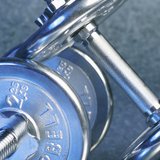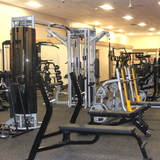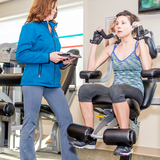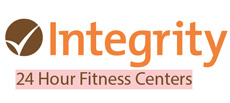Do you challenge yourself?
6 Things I Learned from 90 Days Without Alcohol, Added Sugar, Caffeine, or Cannabis
It’s December 17th, the morning after a great wedding, I wake up hungover in a hotel room and see a message on my phone. It’s from my good friend: “I have a challenge for you.”
“I’m always up for a challenge, what is it? I reply. Little did I know what I was getting myself into.
“It’s a 90 day challenge: no alcohol, no drugs, no refined sugar, low dopamine.”
He described it as a mental reset, 90 days is generally seen as the amount of time it takes to “rewire” your brain – to drop old habits and build new ones through strengthening neural pathways. It sounded like something that I could really use, I’ve always enjoyed personal challenges and the unique perspectives they provide on life. I accepted and began the very next day, December 18th.
This challenge wasn’t brought on because I have any issues with abusing these things, but rather as an experiment to lower dopamine stimulation, practice self control, and sharpen focus and willpower.
So, what did I learn?
Self Control is a Muscle
For those of you that don’t know, I work in the alcoholic beverage industry – I fly around the country visiting bars and liquor stores to sell them my family’s meads and ciders. As such, I am constantly exposed to delicious craft beer, spirits, wine, mead, cider, anything you can imagine. It’s not like I could simply hide from alcohol… I sell it!
During those 90 days I visited amazing craft beer scenes: Asheville, Colorado, Vermont, Austin, Tampa Bay, Miami. I was surrounded by temptation throughout the challenge. In Colorado I even went to a store that featured over 200 different strains of cannabis, but I didn’t cheat!
I noticed that over time, as I practiced self control, it became easier to say no. The first month was the hardest: a Vermont trip, Christmas and New Years, and a visit to Colorado. After all that practice I felt confident that I could exercise self-control in any situation.
After that first month the challenge didn’t seem like such a big deal, I was much less tempted by things and so it became easier. I think part of what helped me is that I never tried to avoid situations that would tempt me, I faced them head on and accepted the practice that they provided to strengthen my willpower.
Self Control is like a muscle: the more you use it, the stronger it becomes. In the beginning it may become fatigued relatively quickly, but after continued training it has great endurance and becomes natural.
Adult Social Life is Built Around Substances
I learned just how much of our social life is focused around substances, whether it is meeting up for coffee or going out for drinks. I noticed that most of the activities that I did with my friends involved drinking in some capacity, especially since it was winter time.
In the beginning I went out to bars and clubs and just drank water, I actually had a great time. Since I started the challenge right before the holidays, I had to endure both Christmas and New Year’s without any substances. I managed to stay out until 6am on New Year’s without any alcohol at all. I danced, partied, and had a great time socializing. It was awesome, and I didn’t have a hangover the next day so my 2018 started off beautifully.
Further into the challenge, however, I didn’t want to go out because sleep became more important to me. It just didn’t seem worth it to go out and party because I wouldn’t get all the rest that I needed. I found myself looking for “sober activities” I could enjoy with friends instead… mostly we just went out to eat.
Refined Sugar is a Powerful Drug
Ok – so I cheated and had a bit of refined sugar on Christmas, and wow did it affect me. I ate a part of a homemade cookie and not even 10 minutes later I had a headache right behind my forehead and a crazy sugar rush. Not only that, but I also had this foggy tired sensation for a few hours after I had the sugar.
Just one full week without refined sugars and it affected me that much, the way it made me feel was enough to convince me that I can live without it.
Recent studies claim that sugar has a similar effect on the brain as cocaine. When sugar is consumed dopamine levels spike and produce a pleasurable sensation, long-term consumption eventually causes a reduction in resting dopamine levels meaning that people need to consume more sugar to get the same feeling.
Drugs such as cocaine, tobacco, and morphine affect the brain’s reward and pleasure centers in a similar way, and just like with those other drugs heavy users of refined sugar often experience withdrawals when they go without.
I personally found sugar to be highly addicting. After the 90 day challenge concluded, I treated myself to a Reese’s Peanut Butter Cup (my favorite) which I had been given for Christmas. The next day I found myself really craving something sweet, just from eating one peanut butter cup the day before!
Added sugar is in almost everything these days. The majority of processed foods have added sugar, restaurants use it substantially too. Even Sriracha sauce has refined sugar as an ingredient! The next time you go shopping, check out the ingredients of what you’re buying. It may surprise you how much you’ll see sugar and other sweeteners in the ingredients list.
I Naturally Spent Much More Time Learning
When I was not engaging in the social activities of drinking and smoking, I naturally refocused my time and energy on personal development and education. I spent time learning Russian, reading books, working on this website, writing, and getting more sleep. I even took some time to brush up on calculus and explore quantum physics.
Instead of stimulating myself through substances, I was stimulating myself with knowledge and work. I felt a much deeper satisfaction, it was subtle but ongoing and building over time as opposed to the quick and immediate pleasure of alcohol and cannabis.
Now that I have concluded the challenge, I strike a balance: when I am going out with friends and being social on the weekend I allow myself to partake in alcohol and cannabis, otherwise I focus my time and energy on learning and personal development. Since the break, both of these things affect me much more so I practice moderation.
I Felt Clear Headed, Energized, and Mindful
My brain was really sharp, I was more engaging and eloquent in social interactions, and I had more focus and greater mindfulness. I felt really clean and healthy.
There was no foggy or tired feeling when I woke up, I was ready to go. I had plenty of energy without any need for caffeine and at the end of the day I felt nice and tired to go to bed.
The best way to describe how I felt is balanced and steady. Since I avoided any artificial stimulation through caffeine, refined sugar, alcohol, or cannabis, I did not have any ups and downs.
I was also much more present. There was no grasping or striving to feel a certain way. No seeking out caffeine to wake me up, alcohol to take down my inhibitions, sugar to satisfy a craving, or cannabis to relax. It’s easy to fall into such a seeking relationship with a substance, people look to substances to de-stress and wind down after a long day for instance, or when they are feeling down.
Instead of looking for an escape through a substance, if I was stressed during the challenge I naturally came up with ways to manage my mental state and stay calm. (See Equanimity: 7 Ways to Stay Calm and Balanced in a Turbulent World)
—
It was a great challenge overall, I learned a lot about myself. Now that it is over, I’ve decided that added sugar and caffeine are both permanently out for me. Alcohol and cannabis are only for when I am going out with friends on the weekend. I am satisfied with this balance for now, and I will likely repeat the 90 day challenge each year.
About Me
I’m Ben! I’m a travel-obsessed abstract thinker here to help you extract the hidden lessons behind your day-to-day experience.

About Integrity
Integrity Health is a franchise company residing in New Hampshire. We specialize in health coaching centers combining fitness with weight loss to optimize and promote optimal health. We are also the national purveyors of the RAMP Metabolic Fitness Prescription licensed by fitness professionals.
HEALTH COACHING LOCATIONS

491 Main Street
Gorham, NH 03581

1857 White Mountain Highway
North Conway NH 03860

Solutions For Fitness Centers

